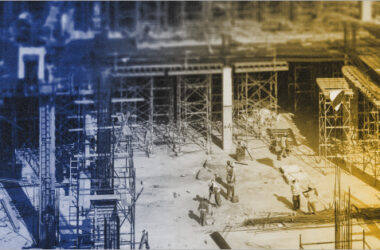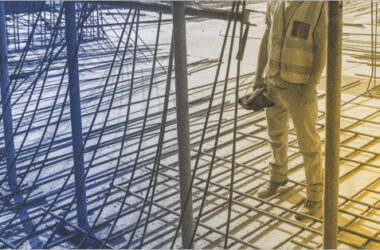The construction industry thrives on meticulous planning and managing unforeseen risks. One crucial element in safeguarding your construction project is Contractor’s All-Risk (CAR) Policy. This blog empowers construction companies with 7 key checks to perform before purchasing CAR Policy. By carefully evaluating these factors, you can ensure you select the right policy that offers comprehensive protection for your project.
7 Things Construction Companies Must Check Before Buying Contractor All Risk Insurance
Before purchasing CAR Policy, there are several essential factors that construction companies must consider to ensure comprehensive coverage and adequate protection. Let’s explore seven crucial aspects that these companies must check before buying Contractors All Risk Policy –
1. Scope of Coverage:
The first and most crucial step involves understanding the specific coverages offered under the CAR Insurance Policy. Not all policies are created equal, and the scope of coverage can vary significantly. Here’s a breakdown of key areas to examine:
- Property Damage: Ensure the policy covers damage or loss to your construction materials, equipment, and temporary structures at the site. This includes protection against perils like fire, lightning, theft, vandalism, and weather events.
- Third-Party Liability: Evaluate if the policy covers your legal liability for accidental bodily injury or property damage caused to third parties during construction activities. This could include injuries to pedestrians, neighboring property damage, or damage to public infrastructure.
- Additional Coverages: For some Contractor All Risk Policies offer optional add-ons for specific risks. These might include coverage for errors and omissions, pollution liability, or delay in start-up due to unforeseen circumstances.
2. Coverage Limits and Deductibles:
Understanding coverage limits and deductibles is paramount. The coverage limit refers to the maximum amount the insurance company will pay towards a covered claim. The deductible is the upfront amount you, the policyholder, are responsible for before the insurance kicks in.
- Coverage Limits: Carefully assess the potential value of your project and choose a coverage limit that adequately protects your investment. Opting for a higher coverage limit offers greater financial security but comes at a premium cost.
- Deductibles: Strike a balance between affordability and financial protection by choosing a deductible that aligns with your risk tolerance and budget. A higher deductible lowers your premium but requires you to shoulder a larger financial burden in the event of a claim.
3. Project Specifications and Exclusions:
Not all Contractor All Risk Policies cover every type of construction project or risk. Meticulously review the policy wording to understand any exclusions that might apply to your specific project. Here are some common exclusions to be aware of:
- Defects in workmanship: CAR Policy typically doesn’t cover damages arising from faulty construction practices or defective materials.
- Intentional acts: The policy might exclude coverage for losses caused by deliberate acts of vandalism or intentional damage to property.
- Specific perils: Some policies might exclude coverage for certain perils like earthquakes, floods, or political unrest. If these pose a significant threat to your project location, consider purchasing additional coverage.
4. Policy Duration and Project Timeline:
The duration of your Contractors All Risk Policy should align with your project timeline. Ensure the policy covers the entire construction period, from the initial mobilization on the site to project completion and handover. Obtaining a policy extension or adjusting the coverage period mid-project can be complex and might incur additional costs.
5. Reputation and Financial Strength of the Insurance Provider:
Choosing a reputable and financially strong insurance company is crucial. In the unfortunate event of a claim, you want to be confident that your insurer has the resources to fulfill its obligations. Here are some factors to consider:
- Company Reputation: Research the reputation of potential insurance providers. Look for companies with a proven track record of honoring claims and providing efficient customer service in the construction sector.
- Financial Strength: Evaluate the financial strength of the insurance companies you’re considering. Strong financial ratings indicate the insurer’s ability to meet its financial commitments in the event of a large claim.
6. Claims Process and Timeline:
Understanding the claims process is essential in case of an incident. Knowing what steps to take and how the insurer handles claims can minimize stress and expedite the resolution process.
- Claims Reporting Procedures: Familiarize yourself with the procedures for reporting a claim to your insurance company. This typically involves submitting detailed documentation of the incident and the extent of the damage or loss.
- Claim Settlement Timeline: Inquire about the average timeframe for claim settlement under the policy. A clear understanding of the process can help you manage cash flow and project timelines in the event of a claim. Evaluate the insurer’s claim settlement track record, turnaround time for claim processing, and ease of filing a claim. Look for insurers known for their prompt and fair claims handling, with dedicated support teams to assist throughout the claims process.
7. Contractual Obligations and Project Specifications
Before finalizing the Contractors All Risk Policy, carefully review contractual obligations, project specifications, and requirements set forth by project owners, lenders, or regulatory bodies. Ensure that the insurance policy aligns with the contractual requirements and provides the necessary coverage as stipulated in the construction contracts. Failure to comply with contractual obligations could lead to disputes, delays, or financial penalties, underscoring the importance of thorough review and alignment between the insurance policy and project requirements.
Conclusion
CAR insurance serves as a vital risk management tool for construction companies in India, offering protection against a wide range of risks and liabilities inherent in construction projects. By carefully evaluating the essential checkpoints mentioned above, construction companies can make informed decisions when purchasing Contractor All Risk Policy. Investing in comprehensive CAR Policy not only safeguards construction projects against unforeseen events but also ensures business continuity and financial stability in the face of adversity. With thorough due diligence, construction companies can mitigate risks effectively and focus on delivering successful projects.








